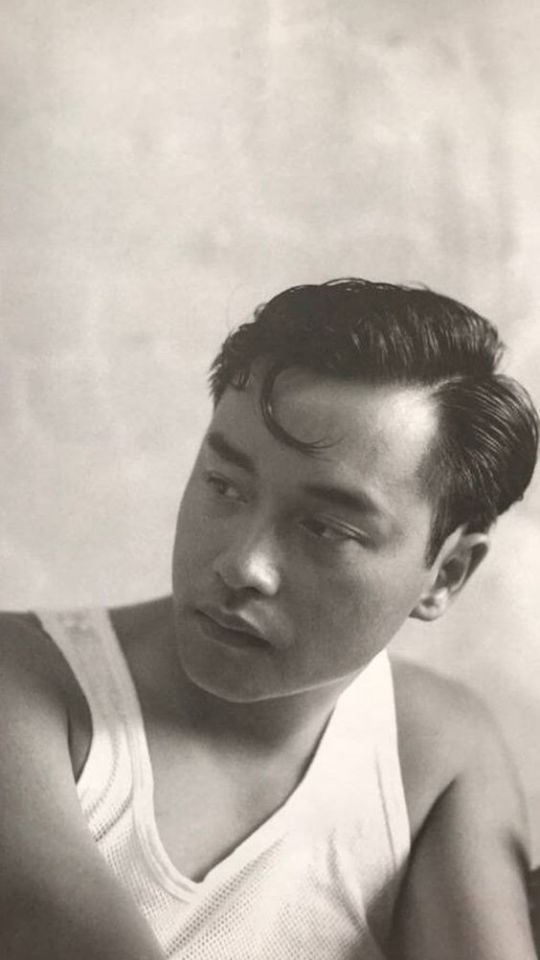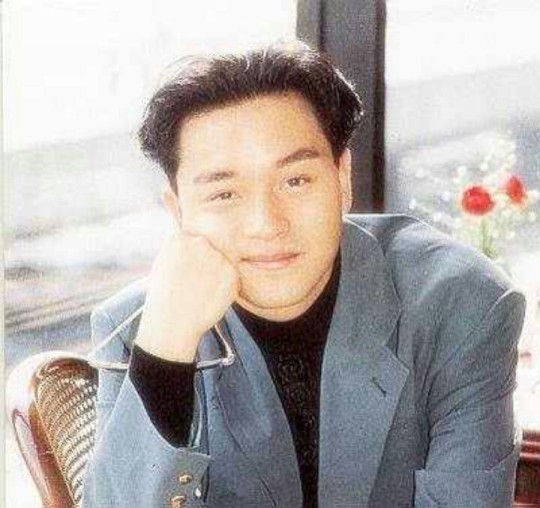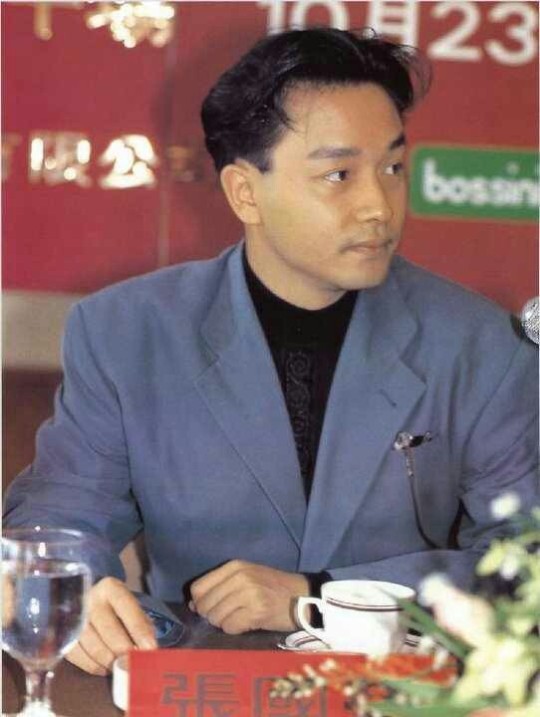#cantopop
Text
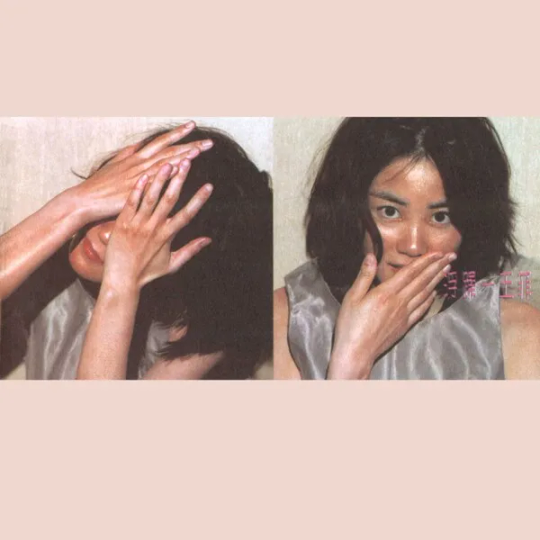
232 notes
·
View notes
Photo
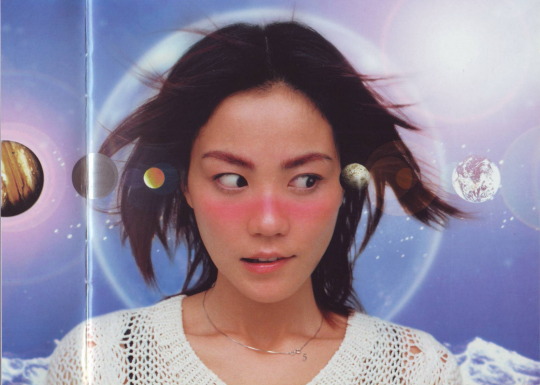





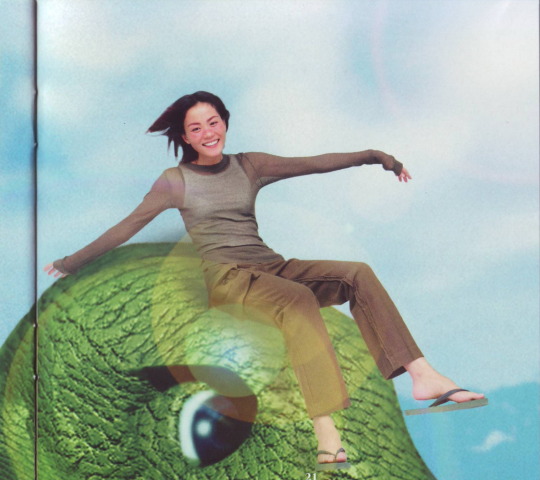

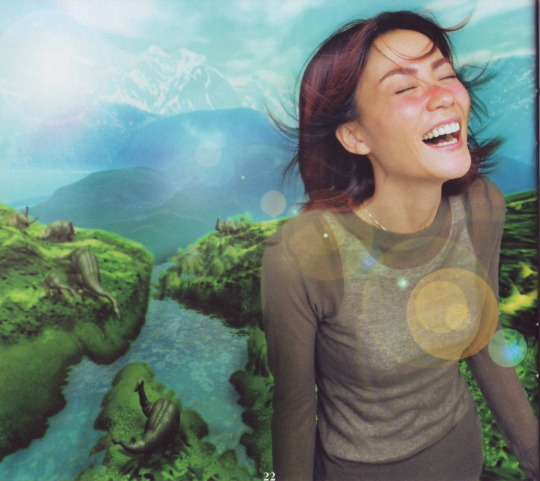
Faye Wong 王菲 – Sing and Play 唱遊 Booklet Photoset (1998年)
813 notes
·
View notes
Text
Translation of Anita Mui's 1991 "似是故人来" (It Seems an Old Friend has Returned)
My first sapphic translation! Anita Mui, the Madonna of Hong Kong, has a very special place in my heart. She sang many Golden Age anthems, starred in just as many Golden Age dramas, and was named the "big sister of HK's music industry." Though she never disclosed her sexuality, she was named a queer icon for her androgyny, sexually explicit lyrics, and performance of genderqueer roles. (Think Lady Gaga.)
似是故人来 is the theme song of the 1991 双镯, or "The Two Bracelets," a lesbian love story set in the countryside of southern China. The movie was adapted from the novel of the same name by Lu Zhaohuan, and was directed by Huang Yushan. 似是故人来 was composed and produced by Luo Dayou, with lyrics by Lin Xi, both of whom operated under strict censorship and limited knowledge of the film's plot. According to Luo, Anita Mui was 2.5 hours late to the recording session (which I think is kinda gay), but finished the recording in 30 minutes.
Translation:
同是过路 同做过梦
We walked the same roads towards the same dreams.
本应是一对
We were supposed to be a couple.
人在少年 梦中不觉
I was too young, I didn’t know I was dreaming.
醒后要归去
Now I’ve awakened, and I wish to return.
三餐一宿 也共一双
Three meals, one house, the two of us together.
到底会是谁
Who will you be in my future? (1)
但凡未得到 但凡是过去
I don’t think you’ll ever understand. It’s in the past, after all.
总是最登对
But I’ve always loved you. (2)
台下你望 台上我做
You’ll watch me from the audience, I’ll perform for you onstage.
你想做的戏
I’ll give you whichever story you wish. (3)
前事故人 忘忧的你
Old friend, you who forget your sorrows,
可曾记得起
Do you ever remember me? (4)
欢喜伤悲 老病生死
Joys and sorrows, life and death:
说不上传奇
What are those stories next to ours? (5)
恨台上卿卿 或台下我
I hate those lovers onstage, and I hate myself offstage. (6)
我不是我跟你
I hate that I am not with you. (7)
俗尘渺渺 天意茫茫
This land is so barren. Heaven knows no shame (8)
将你共我分开
To separate you from me.
断肠字点点 风雨声连连
My broken heart beats in my every word. This storm will never end.
似是故人来
Old friend, I thought you were coming back. (9)
何日再在 何地再聚
When will we be here again? Where shall we meet again?
说今夜真暖
This evening was so warm.
无份有缘 回忆不断
We don’t share a destiny, but I’ve never stopped thinking of you. (10)
生命却苦短
This life is so short.
一种相思 两段苦恋
One lovesickness, two bitter hearts.
半生说没完
I’ve spent half a life spent describing you to others. (11)
在年月深渊 望明月远远
Each year is an abyss, I wish upon the moon.
想像你忧怨
And I remember all your sorrows.
俗尘渺渺 天意茫茫
This land is so barren. Heaven knows no shame
将你共我分开
To separate you from me.
断肠字点点 风雨声连连
My broken heart beats in my every word. This storm will never end.
似是故人来
Old friend, I thought you were coming back.
留下你或 留下我在
Did I leave you behind? Or did you leave me behind,
世间上终老
To grow old in this world? (12)
离别以前 未知相对
Before we parted, did we know how much we loved each other?
当日那么好
Those days were so lovely.
执子之手 却又分手
I hold your hand, just to let it go again.
爱得有还无
I don’t know where to find our love. (13)
十年后双双 万年后对对
In ten years, we’ll be together. In ten-thousand years, we’ll be together.
只恨看不到
I only wish I could see it happen.
十年后双双 万年后对对
In ten years, we’ll be together. In ten-thousand years, we’ll be together.
只恨看不到
I only wish I could see it happen.
Translation notes:
(1) 到底会是谁 translates directly to "Who will it be, really?" When placed in conversation with the previous line, this line could mean, "Who will be my partner?" (referring to a love interest the speaker does not yet know/recognize) or "Who will you be?" (referring to the speaker's uncertainty towards their current love interest, and how their love interest seems foreign to them now). The lack of subjects, objects, and pronouns leaves a lot of room for interpretation, so I chose the angstier version.
(2) 总是最登对 translates directly to "Always the right one," or "Always correct." I take this to mean that the love interest has always been the right person for the speaker--hence, "I have always loved you."
(3) 你想做的戏 translates directly to "Whichever play you want to see," referring to the previous line concerning the actress/audience interaction. I chose "I'll give you whichever story you wish" because it sounded better (subjective?) and felt congruous to a number of lines besides just the previous, as well as to the song's meta context. This song was part of a broader love story/movie, after all.
(4) 曾 (ceng) implies something ancient: translated literally, the line is "Have you already remembered?" or "I/you/[subject] already remember." Considering how the protagonists of the movie view their queerness as a sorrow that must be forgotten/left behind, I decided to place this line in conversation with the previous, and go with "do you remember me?"
(5) 说不上传奇 translates directly to "They can't be considered legends," which I believe is a line meant to minimize life/death/old age/illness next to the speaker's love. I thought it was a bit awkward to refer to life/death as legends, so I used the term "stories" and added "next to ours" to match the full effect of the line and its relationship to the previous line. I converted this line into a question because a simple sentence in English doesn't quite have the same power as a short sentence/fragment in Cantonese. Questions do, though, because they feel more accusatory.
(6) The 卿 of 卿卿 (qing qing) can be translated any number of ways: "ministers (of the law)", "wives/ladies," or "lovers." There's a certain heterosexual rigidity implied in the word, which I think any English translation loses.
(7) 我不是我跟你 is the line that confused me the most, because it defies both Chinese and English grammar structures. I tried translating it literally at first: "I am not me with you," or "I am without you," or "Without you, I am not me," before deciding to go with the laziest route. Let me know if there's a better translation, please--I'm still confused.
(8) 天意茫茫 translates to "Heaven's will is wild and vast." The original line implies unknowability, but I used a pretty heavy hand in choosing the word "shame" instead. My academic justification is that shame, accusation, and frustration echo throughout this whole song, and my translation pays tribute to that. My honest justification is that I liked the angst.
(9) There is no object in this line--the speaker just says, "I thought an old friend was coming back"/"It's as if an old friend is coming back." But I liked the addition of an object.
(10) 份 (fen) could mean "to share" or "to separate" or "to share by separating" (e.g. splitting food between people). In this case, I thought it would sound strange to write "splitting a destiny."
(11) 半生说没完 translates to "half a life is not enough." The speaker doesn't clarify what they need the time for: whether to spend with their lover, to talk about them, etc. "Describing you to others" was a big creative liberty of mine, but it's also something that feels very sapphic, and emphasizes the speaker's loneliness.
(12) 终老 has the implications of taking care of one's parents when they are old: a duty, and an emotional labor. Growing old alone, without anyone to take care of you, is a very sad thing in Chinese culture.
(13) 爱得有还无 also translates to "I don't know whether this love exists" and "I don't know whether I have this love." But considering the importance of location, and the importance of journeying/coming/going, I chose "where to find."
#anitamui#anitamuitranslation#anita mui#cantopop#cantopoptranslation#cantopop translation#hong kong#golden age hong kong#Spotify#translation
33 notes
·
View notes
Text
[TRANSLATION] Art and Piece Issue 16 - Dora Ng about Leslie Cheung
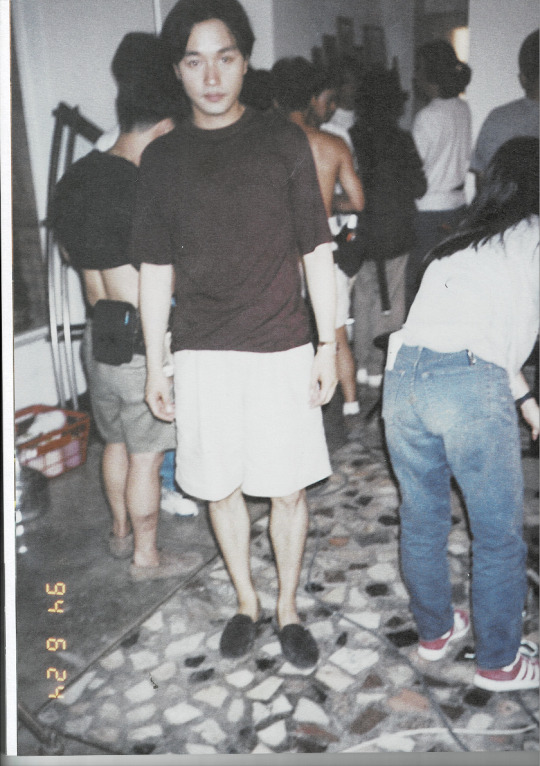
"If you ask me what I miss most about him, I think it’d be that really kind and approachable feeling."
FLOATING BY, SWEEPING PAST, THEN REMEMBERING AGAIN
Dora Ng - Costume Lead, "He's a Woman, She's a Man"
I am Dora Ng, I love fashion, am a movie costume director/ lead, and had the privilege of snapping a few design shots for Gor-Gor. In the blink of an eye, twenty years have passed. My relationship with him can probably be described as... honest acquaintances. Actually, we only worked together a few times, but the first collaboration was already the most well-known one: He’s a Man, She’s a Woman.
Being in the industry for so many years, I can’t deny that a superstar like Leslie felt very distant at first. It’s only when I got to know him that I found his friendliness and warmth could melt the ice between person and person. I first worked with him on “He’s a Man”, and at the time we frequently discussed our worries about the budget being quite small. He generously said, “Come to my house and pick out some clothes then!” He was completely serious - it was both surprising and touching. To be blunt, Gor-gor’s home was a sea of clothes, but he never hurried us or questioned us. The most memorable time was when we spent over two hours there but still hadn’t finished our work. He ended up saying, “Since this is the situation now, how about you stay for dinner together?” It was just a simple sentence. An outsider might find it hard to understand how meaningful that was, but Gor-gor was that person who is always willing to help you; always willing to give you patience, time and space.
He wouldn’t stop chatting with you, and would try his best to make you relaxed. That’s still something unforgettable for me. Other than the two He’s a Man films, I also worked with Gor-gor on Okinawa Rendez-vous and Anna Magdalena. I especially remember that Leslie refused to wear big brands in Anna Magdalena and suggested wearing regular clothing instead. He was very clear on the fact that the character was an ordinary magazine editor and not Leslie Cheung. However, my most unforgettable memory of him is still the filming of Who’s The Woman, Who’s The Man. I took a few design shots of Leslie so we could be more coordinated in changing outfits for different scenes. I remember for one of those pictures, I was really nervous while holding the stack of clothes at the side, waiting for Leslie to change. Gor-gor, being the caring and attentive person that he was, started chatting with me and then suddenly stretched out his arm and patted me on the head. He said one sentence: “Don’t worry, you have your market too.” Even for the hotel scene in He’s A Man, Gor-gor saw that I looked very nervous, so he pushed me on the bed and tickled me, saying repeatedly, “Smile a little, don’t be so nervous!” Leslie in the mid-90s was the most popular superstar - he could have just sat and waited, but he was always so caring to everyone and everything around him. He was always very sensitive and thoughtful towards us.
I definitely have feelings of regret and sadness, especially when I knew that Leslie was planning his directorial debut while filming the He’s a Man series and Anna Magdalena. Yee Chung Man and I both had the opportunity to work on that film, but when the opportunity disappeared, that feeling of sorrow and missing him was really hard to describe. If you ask me what I miss most about him, I think it’d be that really kind and approachable feeling - no wonder everyone called him “Gor-gor”.
Gor-gor, floated by, swept past, and remembered again - that memory always feels warm in my heart.
T/N: Translated the lyric “飄過掠過再記起” from the song “妳在何地/Where Are You” as “Floating By, Sweeping Past, Then Remembering Again”.
Translated by me (@dailylesliec on Twitter/Tumblr), do not repost without credit. If you like this translation, consider following me or buying me a Ko-fi.
For the formatted PDF version of this article, click here.
#leslie cheung#dailylesliec translations#art and piece#and and piece issue 16#張國榮#cantopop#hongkong#장국영
7 notes
·
View notes
Text
SHIRLEY KWAN albums


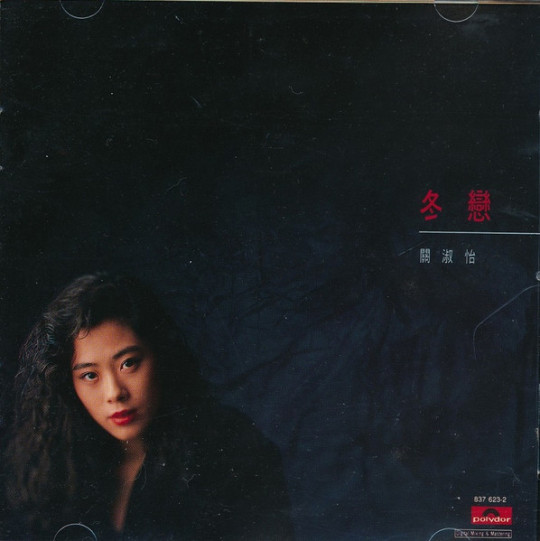

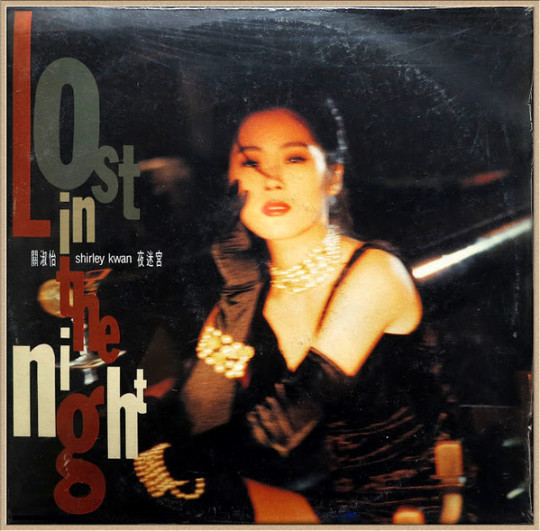


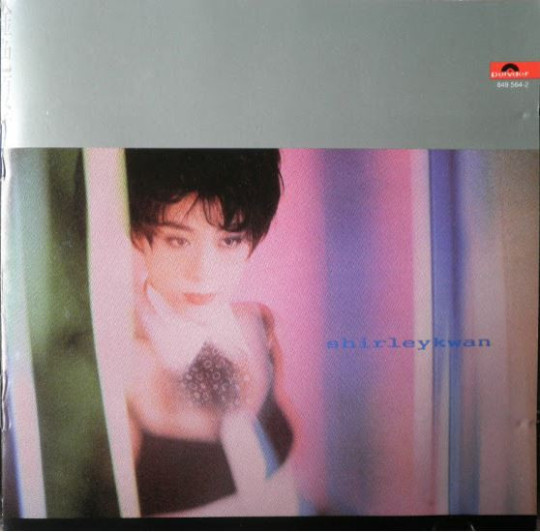


Shirley Kwan is the person who shaped Cantopop and city pop at the same time of her debut. She was signed under Polygram in Hongkong - Japan and debuted in late 80's. Although right after her debut, she withdraw in Japan, she still managed to create a name for herself not just in Hongkong and Japan, but also in Taiwan whom she was popular and was remembered.
#shirley kwan#90's fashion#futurism#90's icons#futuristic#y2k fashion#cyber y2k#y2k aesthetic#y2k vibes#futurist fashion#cantopop#kayokyoku#80s aesthetic#80's jpop#80s style
52 notes
·
View notes
Text
Denise Ho

Singer and pro-democracy activist Denise Ho was born in Hong Kong in 1977. Ho rose to stardom as a Cantopop singer in the 90s. She had a string of hit songs in the 2000s, and won several awards. Ho came out as gay in 2012, becoming a high-profile gay rights advocate. She was an outspoken supporter of the Hong Kong's 2014 Umbrella Movement, and the 2019 anti-government protests. In late 2021, she was arrested for "conspiracy to publish seditious materials", and again in 2022 for "colluding with foreign forces".
Image source: United States Congress
26 notes
·
View notes
Text


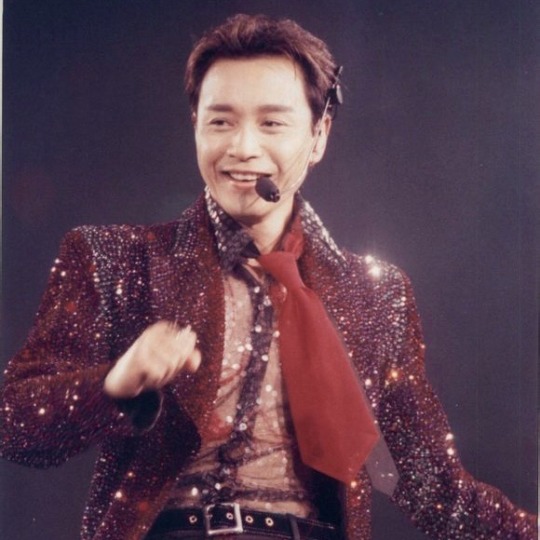
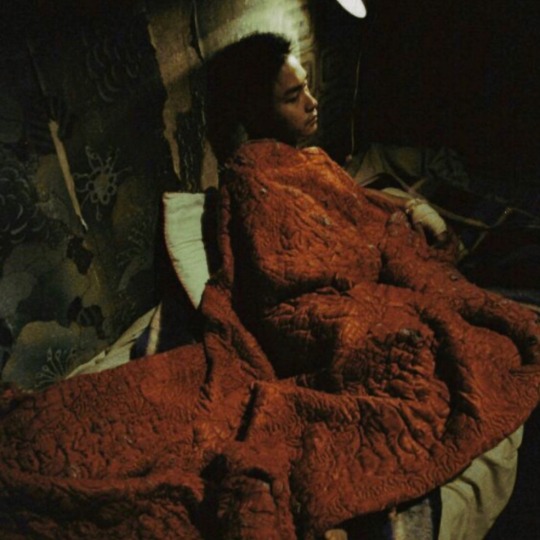




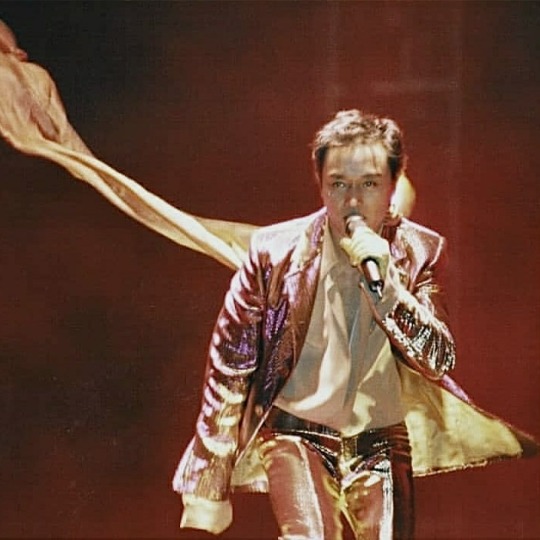
Red is like the memory of the setting sun
Leslie Cheung and the colour red
#leslie cheung#張國榮#red aesthetic#cantopop#80s hong kong#1980s#1990s#2000s#retro aesthetic#farewell my concubine#happy together#type: aesthetic#person: leslieeee#queer artists#lgbtq
110 notes
·
View notes
Text



Anita Mui as Fleur in Rouge (1987) dir. Stanley Kwan
#anita mui#rouge#stanley kwan#worldcinemaedit#uservintage#filmgifs#hong kong cinema#rouge 1987#ellisgifs#hong kong movie#胭脂扣#yanzhi kou#cantopop#Mui Yim-fong#梅艷芳#getting rid of all that yellow was truly an experience
134 notes
·
View notes
Text
kpop stans having a hard time understanding that cpop doesn't target the international market will always be funny to me
#because is really not that complicated#''they could be huge'' they could be huge without needing the west baby have you seem how many people are there?#talked with a chinese person about it once about how the usa popularized anti-china proganda in the west#so literally why would they want validation from us?#is so weird seeing kpop stans talking about yuehua like they're a super flop company knowing how huge they are in cpop#kpop spoiled you my friend#they can't seem to understand is a different industry that works different? idk#random stuff on my account like usual#cpop#mandopop#cantopop
2 notes
·
View notes
Text
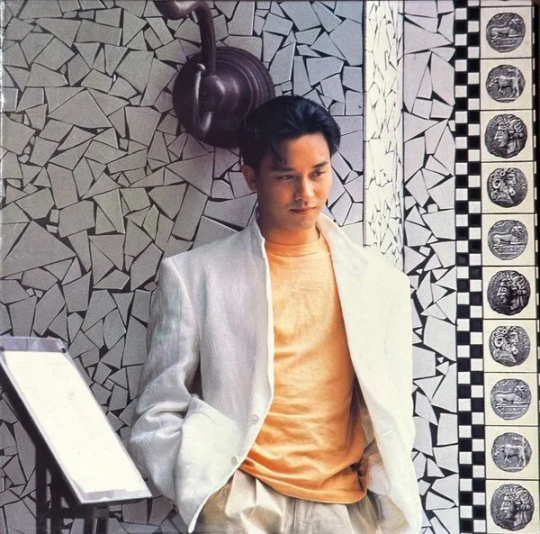
82 notes
·
View notes
Text
《天涯孤客》 (Lonely Traveller to the Ends of the World)
《子連れ狼》 主題曲翻唱 (Cover of 《Lone Wolf & Cub》)
主唱:鄭少秋,合唱:珍珍 & 佩佩
(Lead: Adam Cheng,Backing: Zan Zan & Pui Pui)
亞洲電視台 《殭屍道長》 [1995] 主題曲
(Theme for ATV's 《Vampire Expert》 [1995])
作詞:蘇翁,作曲:𠮷田 正
(Lyrics:So Yung,Music:Yoshida Tadashi)
***********************************************
#[女:夜靜更深對朗月 朗月清輝亮
je⁶ zing⁶ gaang¹ sam¹ deoi² long⁵ jyut⁶,long⁵ jyut⁶ cing¹ fai¹ loeng⁶
Facing the clear moon in the deep stillness of the night, it shines especially bright.
行遍天涯離開家園沉痛看月亮
haang⁴ pin³ tin¹ ngaai⁴ lei⁴ hoi⁴ gaa¹ jyun⁴ cam⁴ tung³ hon¹ jyut⁶ loeng⁶
Since leaving home to wander to the ends of the world, looking at the moon has filled me with a sense of deep pain.
何堪天涯回首家鄉 夜夜暗盼望
ho⁴ ham¹ tin¹ ngaai⁴ wui⁴ sau² gaa¹ hoeng¹,je⁶ je⁶ am³ paan³ mong⁶
How can I carry on in the world when I long for home, long secretly for it every night?
笑對朗月 月光光照地塘上
siu³ deoi² long⁵ jyut⁶,jyut⁶ gwong¹ gwong¹ ziu³ dei⁶ tong⁴ soeng⁵
I can only smile at the luminescent moon, as its moonlight shines brightly upon the embankment,
照著歡暢團敘愉快 溫暖處樂也洋洋]
ziu³ zoek⁶ fun¹ coeng³ tyun⁴ zeoi⁶ jyu⁶ faai³,wan¹ nyun⁵ cyu³ lok⁶ jaa⁵ joeng⁴ joeng⁴
casting out a delightful recollection, filled with warm and joyful scenes.
★[男:遠處裡隔阻千里白雲晚望
jyun⁵ cyu³ leoi³ gaak³ zo² cin¹ lei⁵ baak⁶ wan⁴ maan⁵ mong⁶
In the far off distance, separated by white clouds and late-night longings,
想 想 想 別離後寸心怎會不思鄉
soeng² soeng² soeng²,bit⁶ lei⁴ hau⁶ cyun³ sam¹ zam² wui⁶ bat¹ si¹ hoeng¹
longing, longing, longing, how could one not long for home intensely after bidding it adieu?
每夜每朝抱愁眠 悲痛流浪
mui⁵ je⁶ mui⁵ ziu¹ pou⁵ sau⁴ min⁴,bei¹ tung³ lau⁴ long⁶
Wrecked with restless sleep day and night, I can only wander sorrowfully,
故地故苑最是難忘 空盼望
gu³ dei⁶ gu³ jyun² zeoi³ si⁶ naan⁴ mong⁴,hung¹ paan³ mong⁶
old haunts are hardest to forget, just a futile hope in the end.
啊… 深秋滿地風霜最斷腸]
aa³… sam¹ cau¹ mun⁵ dei⁶ fung¹ soeng¹ zeoi³ dyun⁶ coeng⁴
Ah…late autumn is the worst, the most gut-wrenching time!
女:月亮光光 月亮光光
jyut⁶ loeng⁶ gwong¹ gwong¹,jyut⁶ loeng⁶ gwong¹ gwong¹
The moon shines bright, the moon shines bright!
月亮光光 月亮光光
jyut⁶ loeng⁶ gwong¹ gwong¹,jyut⁶ loeng⁶ gwong¹ gwong¹
The moon shines bright, the moon shines bright!
陣陣秋風送柳浪 朗月光且亮
zan⁶ zan⁶ cau¹ fung¹ sung³ lau⁵ long⁴,long⁵ jyut⁶ gwong¹ ce² loeng⁶
Sporadic autumn wind brings with it a wave of pleasure, as the moon shines ever brightly.
人去天涯萍蹤飄流何處有岸
jan⁴ heoi³ tin¹ ngaai⁴ ping⁴ zung¹ piu¹ lau⁴ ho⁴ cyu³ jau⁵ ngon⁶
Those who wander to the ends of the world seeking where there is land,
離開妻兒懷想家鄉 異地兩處望
lei⁴ hoi¹ cai¹ ji⁴ waai⁴ soeng² gaa¹ hoeng¹,ji⁶ dei⁶ loeng⁵ cyu³ mong⁶
who have left their wives, children and home, only long for them from a strange place.
笑對朗月 月光光照地塘上
siu³ deoi² long⁵ jyut⁶,jyut⁶ gwong¹ gwong¹ ziu³ dei⁶ tong⁴ soeng⁵
I can only smile at the luminescent moon, as its moonlight shines brightly upon the embankment,
照著歡暢孩兒父母 溫暖處樂也洋洋
ziu³ zoek⁶ fun¹ coeng³ haai⁴ ji⁴ fu⁶ mou⁵,wan¹ nyun⁵ cyu³ lok⁶ jaa⁵ joeng⁴ joeng⁴
casting out a delightful recollection, of children and parents, filled with warm and joyful scenes.
男:去 去 去 去家千里夢迴故鄉��
heoi³ heoi³ heoi³ heoi³ gaa¹ cin¹ lei⁵ mung⁶ wui⁴ gu³ hoeng¹ soeng⁵
Go, go, go, to go home in my distant dreams,
悲秋風獨流浪那堪飄泊嗟風霜
bei¹ cau¹ fung¹ duk⁶ lau⁴ long⁶ naa⁵ ham¹ piu¹ bok⁶ ze¹ fung¹ soeng¹
as the melancholic autumn winds makes the journey that much harder to bear,
冷落疼心歲月無情飄泊流浪
laang⁵ lok⁶ tung³ sam¹ seoi³ jyut⁶ mou⁴ cing⁴ piu¹ bok⁶ lau⁴ long⁶
as time coldly and ruthlessly crashes on by.
哪日哪朝鳥倦還巢 春柳岸
naa⁴ jat⁶ naa⁴ ziu¹ niu⁵ gyun⁶ waan⁴ caau⁴,ceon¹ lau⁵ ngon⁶
When will the birds return wearily to their nests? Can't wait for the arrival of Spring!
啊… 秋深倍念家鄉最斷腸
aa³…cau¹ sam¹ pui⁵ nim⁶ gaa¹ hoeng¹ zeoi³ dyun⁶ coeng⁴
Ah…autumn intensifies my longing for home even more, the most gut-wrenching time!
女:月亮光光 月亮光光 月亮光光
jyut⁶ loeng⁶ gwong¹ gwong¹,jyut⁶ loeng⁶ gwong¹ gwong¹,jyut⁶ loeng⁶ gwong¹ gwong¹
The moon shines bright! (×3)
[重複 #,★ Repeat #,★]
女:月亮光光 月亮光光
jyut⁶ loeng⁶ gwong¹ gwong¹,jyut⁶ loeng⁶ gwong¹ gwong¹
The moon shines bright, the moon shines bright!
月亮光光 月亮光光
jyut⁶ loeng⁶ gwong¹ gwong¹,jyut⁶ loeng⁶ gwong¹ gwong¹
The moon shines bright, the moon shines bright!
***********************************************
Translator's rambles: An oldie but a goodie! Watching “ancient” HK TV series recently has brought this classic to the forefront of my memories again.
I actually love this cover more than the original Japanese, and as someone who first learned of this song watching 《殭屍道長》 (1995) as a kid, I cannot not hear this song now without thinking of 殭屍 (Chinese hopping vampires)! Heh!
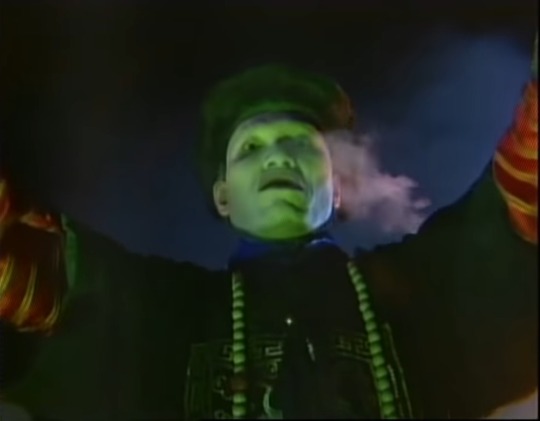
#Cantopop#Haven't done song translation in a while and this is#Rather difficult to translate I'd say! So#May Not Be Accurate#Cantonese#Canto Practise#CMusic#Adam Cheng#My Eng Translations#HK Drama#ATV#Vampire Expert#Chinese Language#Language
2 notes
·
View notes
Text
Translation of Anthony Wong's 1994 我们不是天使 (We Are Not Angels)
Anthony Wong-Ming was one half of Tat Ming Pair, the experimental duo that made some of Hong Kong's most well-known queer anthems during the Golden Age. He sang in both Cantonese and Mandarin, but began releasing more Mandarin music in the late 1990's, after Tat Ming Pair's (amicable) split.
我们不是天使 is my first Mandarin-English translation. When I first heard the song, I was struck by the bitterness in Wong's voice. Mandarin is the language of mainland China, as well as the language of the CCP rhetoric that Wong mentions (and mocks). In 我们不是天使, Mandarin is made--quite literally--into the embodiment of Wong's many political and personal turmoils.
It's also worth noting that Wong grew up Christian, but walked away from his church upon realizing its attitude towards homosexuality. His music is rife with religious motifs: Angels, Heaven, and eternity positioned next to political oppression, which is then positioned next to the viscerality of queer love and longing. I love this song to pieces, and it's actually been the soundtrack to some of my own writing.
Translation:
生命该尊敬自强
They tell us to live a life of respect and self-improvement (1)
爱情该地老天荒
They tell us that proper love should outlast the heavens and earth (2)
他们都不可能说谎
And they wouldn't lie, right?
要是我爱得疯狂
If my love is half-crazed and reckless
要是我不懂隐藏
If I don't know to hide it
是否我还没有成长
Does this mean I am still a child? Have not yet grown into myself?
如果真爱不一定光明
Well, if my love cannot bring light (3)
就让黑暗将天地埋葬
Then I would let darkness bring ruin to the heavens and earth
不希望天天向上
i've never harbored hopes of rising above this (4)
只知道生命无常
After all, I know my life isn't long,
这是我孤独的信仰
And that's religion enough for this lonely man.
是人间没有天堂
Is there truly no heaven between our bodies?
还是我没有翅膀
Or was I born without the wings
飞不出欲望的围墙
To flee from my desire?
总是堕落在谁的胸膛
I've only/always known the depravity of crashing into another's arms
总是让这个世界失望
The world has only/always been ashamed of me
我们不是天使
We are no angels
我们只是孩子
We are just children
寻找可以安躺的海港
Looking for safe harbors
不管天地苍茫
I don't care how vast the heavens and earth are
不怕迷失方向
I'm not scared of losing my way
总有互相拥抱的臂膀
We only/always have each other's arms to fall into
我们不是天使
We are no angels
我们终将飞逝
And in the end, we'll lose ourselves
沦落在五光十色里流浪
But maybe we can lose ourselves in a million colors (5)
难道他们想像的天堂
Tell me, is their heaven
是一个没有欲望的地方
A land without desire?
不希望天天向上
i've never harbored hopes of rising above this
只知道生命无常
After all, I know my life isn't long,
这是我孤独的信仰
And that's religion enough for this lonely man.
是人间没有天堂
Is there truly no heaven between our bodies?
还是我没有翅膀
Or was I born without the wings
飞不出欲望的围墙
To flee from my desire?
总是堕落在谁的胸膛
I've only/always known the depravity of crashing into another's arms
总是让这个世界失望
The world has only/always been ashamed of me
我们不是天使
We are no angels
我们只是孩子
We are just children
寻找可以安躺的海港
Looking for safe harbors
不管天地苍茫
I don't care how vast the heavens and earth are
不怕迷失方向
I'm not scared of losing my way
总有互相拥抱的臂膀
We only/always have each other's arms to fall into
我们不是天使
We are no angels
我们终将飞逝
And in the end, we'll lose ourselves
沦落在五光十色里流浪
But maybe we can lose ourselves in a million colors
难道他们想像的天堂
Tell me, is their heaven
是一个没有欲望的地方
A land without desire?
难道我们垮掉的翅膀
No wonder our broken wings
早已被这个世界遗忘
Have been forgotten by this world
Translation Notes:
(1) 尊敬自强 (cultivating the the spirit of self-improvement and shaping moral character) is a phrase lifted from the CCP's patriotic education campaign, and refers to a moral uprightness that is nationalistic by nature.
(2) A more accurate translation would be, "outlast the end of the earth and the ruin of the heavens." I thought this was a bit clunky, though, and "heavens and earth" fit more nicely with all the other lines that refer to something vast.
(3) A more accurate translation would be, "if my love is not bright," but I thought the action implied in "bringing light" stood in clearer contrast to the line about "ruining the heavens and earth" with darkness.
(4) 天天向上 (ascend every day) is another phrase lifted from the CCP, and also refers to cultivating your moral uprightness/spirit. Ironic, because it refers to ascension (to Heaven) in a very literal way.
(5) A more accurate translation would be, "five brilliances and ten colors," but I thought that was too clunky. I could be missing out on some nuance, though--let me know if I am. :)
Fun fact: Anthony Wong co-founded the Big Love Alliance and Renaissance Foundation, two LGBTQ+ rights organizations. Go check them out if you want to support his non-profit work!
12 notes
·
View notes
Text
[TRANSLATION] Art and Piece Issue 16 - LESLIE X ALAN CHAN - Album Covers
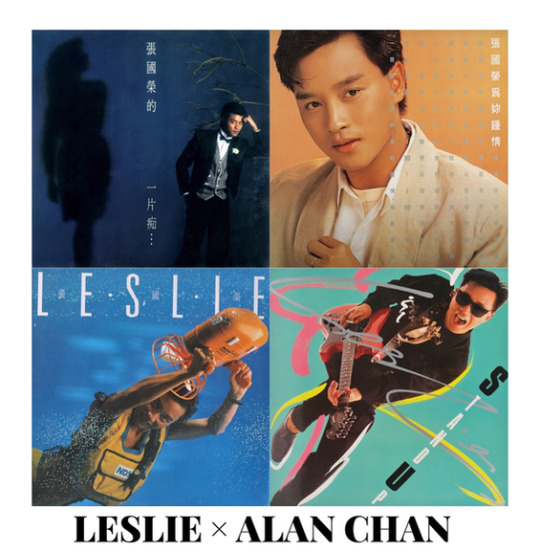

1983 "Craziness"
The first album where Alan Chan and Leslie worked together was Craziness. Notably, the waistcoat, shirt and bowtie were all borrowed personally from Alan Chan. "That outfit was from the Japanese brand Matsuda which was quite the craze back in the 80s and 90s. I still have it even today."
1985 "For Your Heart Only"
When shooting the album cover, Gor-gor already had the whole scene envisioned in his head, even preparing his own outfit and arriving wearing the ring his lover gave him for photos. In the end, Alan Chan used a softer way to approach the cover, expressing Leslie's pure, loving side.
1984 "Leslie"
At first, the album cover photoshoot was supposed to take place at Albert Yeung's home in his pool. However, the end product made the water look very murky, so a large tub was specially arranged for. After Leslie got in, some bubbles were added and the cover was shot again, fitting with the theme of H2O.
1986 "Stand Up"
The album came in four colours with a little hole at the bottom - fans bought all four of them. At the time the top artists in Hong Kong sold 300-400k copies per album. This album, instead of the projected 500k sales, ended up selling 2 million copies.
1987 "Summer Romance"
The album cover photo was taken all the way in Tokyo. Alan Chan arranged for the location and everything, thinking that it was foolproof. However, in the end he found a fallen hair in the photo making it look bad. There wasn't Photoshop back then, but luckily he found a technician to dissect the film layer by layer and remove the hair. It ended up being even more expensive than the photoshoot itself.
1989 "Leslie '89"
Alan Chan said that"Leslie '89" reflected Leslie's truest, most affectionate side. Leslie took the album cover photo by himself, and Alan Chan added some finishing touches and colour with aerosol paint. It became one of Gor-gor's most iconic albums.
1988 "Hot Summer"
This album was one of Leslie's most successful dance-pop albums after switching to Cinepoly Records. Alan Chan added several futuristic, pop-art elements and even included a pair of 3D glasses in the album, giving it a unique and fun twist.
1989 "Final Encounter"
The stage in the album cover was actually constructed in real life and was several feet tall. A vertical observation ladder was also made for photo-taking. However, it was not very stable, so all the photos were taken in one go, making the set of photos extra memorable.
Translated by me (@dailylesliec on Twitter/Tumblr), do not repost without credit. If you like this translation, consider following me or buying me a Ko-fi.
For the formatted PDF version of this spread, click here.
5 notes
·
View notes
